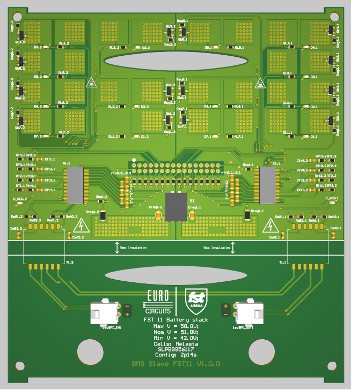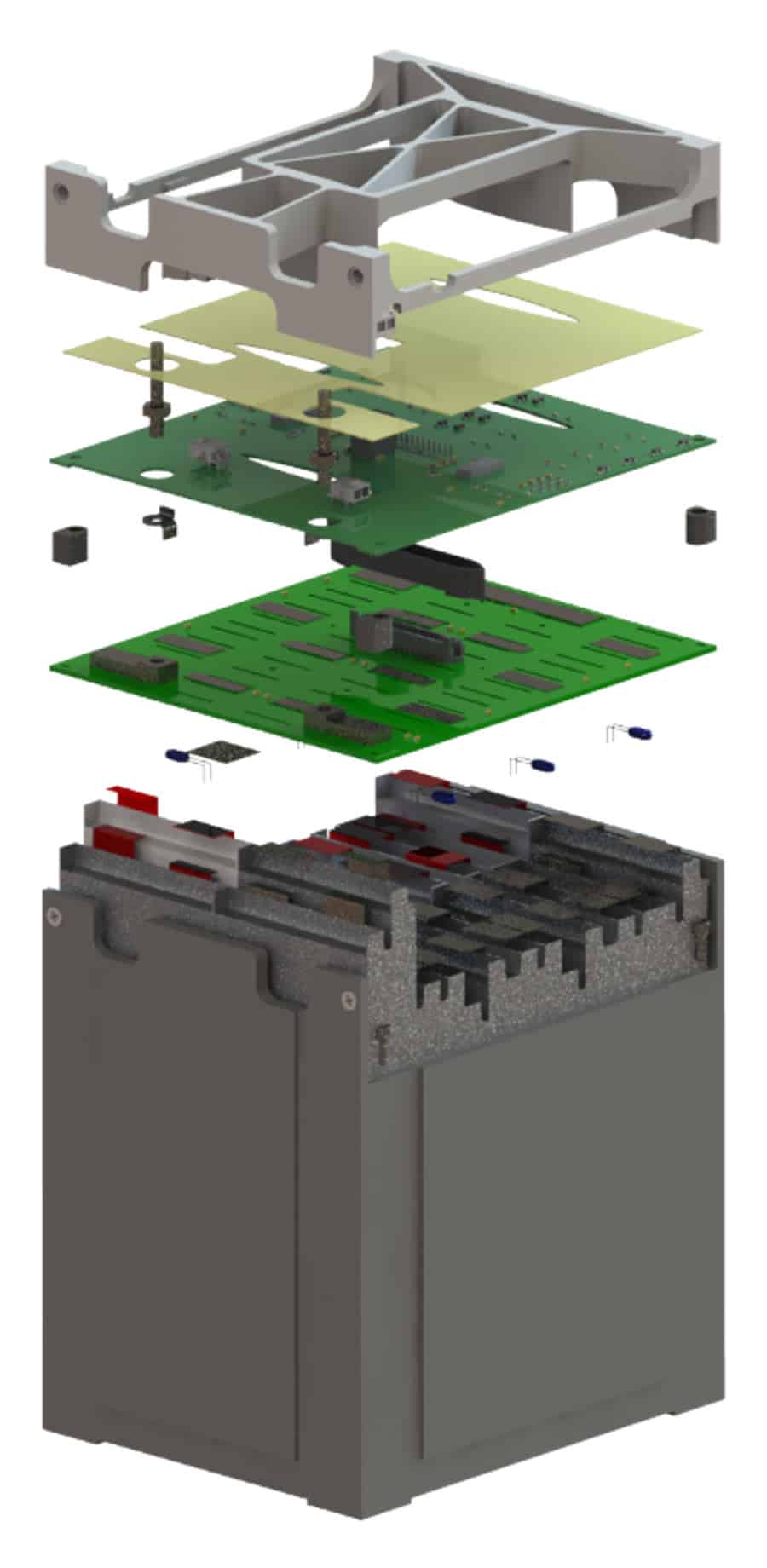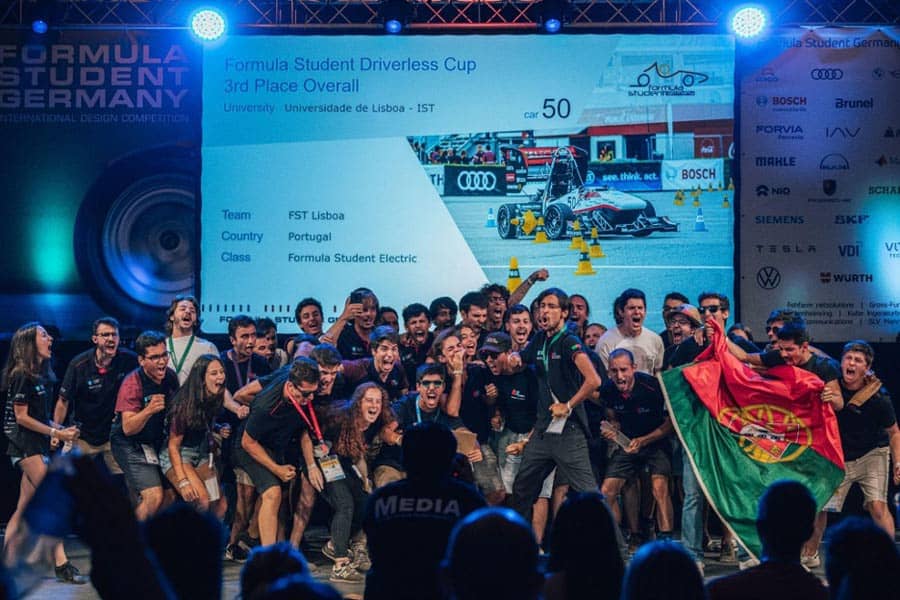Projecting, designing, and manufacturing an electronics system for a Formula Student electric car is always a challenge. FST Lisboa has a lot of experience in regard to dealing with this process, as we have built 11 prototypes in the past 20 years, 8 being electric and 2 with autonomous capabilities.
The main goals for this year’s prototype were developing a car that would perform both manual and autonomous driving and building a new battery. This most certainly changed the architecture of our electronics systems introducing some new designs, and the mechanical constraints inside the battery forced us to search for adaptable designs.
This year we counted on the help of Eurocircuits which not only made possible our PCB designs but also allowed us to try some manufacturing processes we didn’t have the opportunity to implement.
One of the most challenging projects considering the PCB design was the electronics of the battery. Our 588 V battery has 10 stacks of 27 pouch LiPo cells. Each cell has to be monitored to make sure the battery is in operating condition. We used a Master-Slave topology for our BMS (Battery Monitoring device), and each stack is composed of a Cell Interface PCB and a BMS Slave PCB. The Cell Interface PCB grants the connection between the cell tabs, the temperature sensors, and the BMS Slave. The BMS Slave measures the voltage on each cell, receives the temperature reading, sends all this information to the BMS Master, and drives the passive balancing system.
The cooling concept of this new battery involved having very specific cutouts in the middle of our PCBs. The visualization tools of the Eurocircuits platform allowed us to make sure the correct cuts were being made and that the result would be exactly as we envisioned it.
This season we also benefited from the EC stencil service which allowed us to improve our in-house PCB assembly process and the reliability of our electronics.
Furthermore, the manufacturing speed and quality of Eurocircuits enabled us to have all essential electronics working and most importantly on time for our competitions.
Overall, with the help of Eurocircuits, we finished with a reliable electronics system that granted us the ability to complete all runs at FS Germany including EV and DV events.
We are very proud to say that the overall team effort reached 3rd place in the FS Germany Driverless Cup and 1st place in the FS Spain Driverless Competition.
For more information please visit the FST Lisboa website.
We would like to thank Eurocircuits for being part of this year’s success, and for the precious help given the past season.
SEMPRE A JARDAR!!!
















